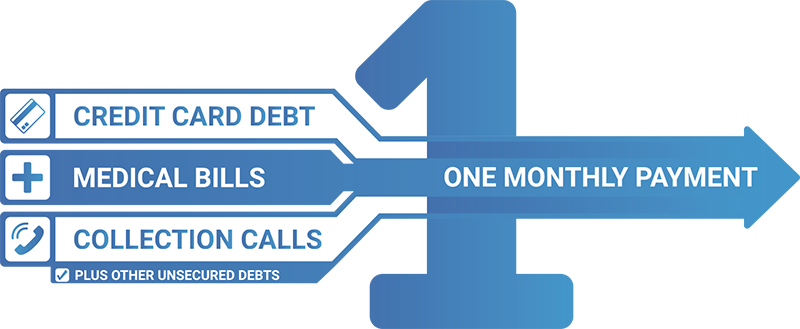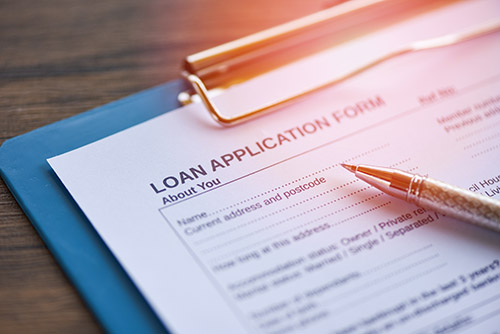Simplify your debt into one manageable monthly payment—no loan required. Find financial stability through our non-profit debt consolidation plan designed for Nevada residents.
Why Choose Debt Relief in Nevada
-
Reduce your monthly payments by up to 50%
-
Cut interest rates up to 75%
-
Eliminate late and over-limit fees
-
Learn about your debt relief options
-
End collections calls
-
Pay off debt faster and rebuild your credit

Get a Free Debt Consolidation Consultation
There is ZERO cost or obligation to you, and may improve your credit score over the duration of the program.
By clicking “Submit” I consent to receive calls and email message offers/information from Debt Reduction Services, Inc. using an autodialer/pre-recorded message at the number I provided. I understand that msg/data rates may apply and that my consent to such communications is not a requirement for purchase. If you would like to stop receiving text messages from DRS, simply reply to a received text with the word STOP.
 We’re a nonprofit debt relief company, licensed in all 50 states.
We’re a nonprofit debt relief company, licensed in all 50 states.
We can help you end the stress of debt and escape the debt cycle for good.
Lower your monthly payments up to 50% and become debt-free faster.
Thanks to our established relationships with major creditors and many local Nevada lenders, we’re able to secure reduced interest rates on your behalf. In many cases, we can also stop late fees, eliminate over-limit charges, and significantly lower your required monthly payments.
How it Works
Step 1.
Talk to one of our certified debt consolidation counselors.
Step 2.
Our preset terms with creditors can get you lower interest rates and payments.
Step 3.
Make just one simple monthly payment to us and we’ll distribute it to your creditors for you.
Reviews and Success Stories
Nevada Debt Relief
Nevada residents have been struggling with debt over the past decade, seeing ever-increasing household debt. As of 2025, the state of Nevada ranks fifth in the nation for the highest rate of debt per capita, and fourth for the highest credit card debt as of 2024. In addition, it ranks the highest in credit card delinquencies.
A decade ago, a majority of bankruptcy filings in the state stemmed from people overextending their budgets on mortgages due to the rise in housing market prices. Now, growing credit card debt is also a major cause of bankruptcy in Nevada.
Living costs—especially in Las Vegas—are above average, leaving many struggling to make ends meet. The city battles with poor credit scores and debt-to-income ratios that leave many with a daunting amount of debt.
Some residents may feel it’s impossible to keep their heads above water. If you, like many others, are finding it difficult to reach a debt-free life, there are options that can assist you. As a non-profit credit counseling agency, we are here to help guide you on the path to financial stability.
First, it’s important to note that you are protected under the Fair Debt Collection Practices Act (FDCPA). This federal law prevents debt collectors from calling you too early in the morning or late at night. A debt collector cannot imply that you will be arrested or sent to jail for nonpayment. Neither can they threaten you with a lawsuit. They may only notify you if one has already been filed.
As a resident of Las Vegas, you are also protected by Nevada debt collection laws that prohibit aggressive collection strategies, such as harassing your employer.
Learn more about our debt consolidation services in Las Vegas here.
Debt Relief Options in Nevada
Start with Credit Counseling
Credit counseling is often the first and most important step toward financial recovery. In this free, confidential service, you’ll sit down with a certified credit counselor who reviews your budget and expenses to pinpoint areas for adjustment. They can guide you toward appropriate debt relief programs, such as debt management plans, that suit your financial situation.
Rather than navigating your debt alone, you can receive professional guidance and support from a credit counselor.
Can You Pay Off Debt on Your Own?
Yes, it’s absolutely possible to pay off your debt independently, but it takes commitment, consistency, and a good understanding of your finances. This approach works best when your debt is limited to a few credit cards, and your income gives you enough flexibility to make more than the minimum payments each month.
Start by tracking your monthly income and necessary expenses—things like rent, groceries, gas, and utilities. From there, figure out how much money you have left over.
If that leftover amount is greater than your combined minimum credit card payments, you may be in a good position to manage your debt independently. If not, you’ll need to look for ways to trim your budget—like shopping smarter, cutting subscriptions, or carpooling—to free up more cash.
Once you know how much you can consistently put toward debt, choose a repayment strategy:
- Snowball Method: Focus on paying off your smallest balance first while making minimum payments on the rest. Once that’s paid off, roll the same payment into the next smallest debt. This method gives quick wins and builds momentum.
- Avalanche Method: Target the credit card with the highest interest rate first. Pay extra toward that one while maintaining minimums on the others. The approach saves you the most money over time by reducing how much interest you pay.
If you’re unsure which method is best for you, or your budget is tighter than expected, you may want to consider credit counseling. A counseling session can help you assess your options and avoid falling further behind. You don’t have to do it all alone.
When to Consider Debt Settlement
Debt settlement is often promoted as a quick fix for reducing what you owe, but it comes with serious risks. These programs are usually run by for-profit companies that promise to negotiate with your creditors to settle your debt for less than the full amount. While this may sound appealing, the process can severely damage your credit and finances.
Many debt settlement companies ask you to stop making payments while they negotiate. This can result in late fees, increased balances, and a sharp drop in your credit score. Worse, there’s no guarantee your creditors will agree to settle. Some may refuse entirely or even sue to recover unpaid debts.
Even when a settlement is reached, the cost can be high. Companies typically charge an ongoing monthly fee plus a portion of whatever they “save” you—sometimes totalling thousands of dollars. Meanwhile, your accounts remain delinquent, and your credit continues to suffer.
Research shows that less than 10% of clients successfully complete debt settlement programs. Many end up with worse credit, unpaid debt, and out-of-pocket costs for a service that didn’t work.
Before choosing this option, explore safer alternatives like credit counseling or a debt management plan. These options offer more reliable results, with far less risk to your financial health.
Is Debt Consolidation Right for You?
Debt consolidation lets you combine multiple debts—often credit cards—into one new loan with a single monthly payment. The goal is to simplify repayment and possibly lower your interest rate. But it’s not the right fit for everyone.
To qualify for a loan with good terms, you usually need decent credit and a steady income. If your credit score has already dropped due to missed payments, you might only qualify for high-interest loans, which defeats the purpose of consolidating.
Even if approved, the loan may not cover all your debts. You could end up managing both a new loan and leftover balances. Plus, consolidation doesn’t include financial counseling—so without help changing your spending habits, you may fall back into debt.
In many cases, this option just extends your payments without solving the root problem. Before applying, speak with a certified credit counselor to review your full range of options.
Bankruptcy: What You Need to Know
Bankruptcy is a legal process that can eliminate or restructure debt, offering a fresh start—but it comes with serious consequences, especially to your credit score. Filing for bankruptcy will stay on your credit report for 7–10 years.
Many people turn to bankruptcy without first exploring other debt relief options. It should be a last resort, not a first step. Talking to a credit counselor beforehand can help you understand whether alternatives—like a debt management plan—might help you avoid the long-term impact of filing.
The Benefits of a Debt Management Plan (DMP)
A Debt Management Plan (DMP) is a structured repayment plan designed by a nonprofit credit counseling agency to help you pay off unsecured debts—like credit cards—in full, but with reduced interest rates and waived fees.
With a DMP, you make a single monthly payment to the counseling agency, which then pays your creditors. Most plans take 3 to 5 years to complete, and you’re typically required to close your credit card accounts while enrolled.
DMPs are ideal for those who can manage a steady monthly payment and want to avoid bankruptcy. While your credit may dip slightly at first, most participants see improvements over time as their debt decreases. DMPs don’t reduce the amount you owe, but they do make repayment more manageable and predictable.
Nevada Debt Relief FAQs
How does a debt relief program affect my credit?
It depends on what type of debt relief program you choose. While debt settlement often has negative impacts on your credit depending on the strategies used, a debt consolidation loan may not as long as you consistently pay back the loan.
Bankruptcy takes a heavy hit on your credit score and stays on your report for 7–10 years. A debt management program can help improve your credit score over time. As you pay down your balances and build a history of on-time payments, your score will gradually rise. Plus, the financial education and tools you receive can help you maintain healthy credit habits long-term.
Is a debt management plan bad for my credit score?
Participating in a debt management plan (DMP) in order to consolidate your debt does not directly affect your credit score.
A temporary note may be made on your credit report by your current creditors. This simply informs other creditors of your attempt to repay your debt and discourages them from issuing you any new accounts, lines of credit, or loans that may detract from your efforts.
Once you have completed the DMP, this notation is required to be removed. In certain circumstances, when a client enrolls in the DMP and either they or their creditors’ close credit accounts, the client may see a short-term drop in credit score partly due to a change in the ratio of current balance to available credit limit. However, this dip is quickly recovered because of on-time payments, which lowers the amount of debt owed.
What debt relief programs are available in Nevada?
Nevada residents can access credit counseling, debt management plans, debt consolidation loans, debt settlement, and bankruptcy. Nonprofits primarily provide counseling and DMPs for sustainable recovery. Feel free to reach out to Debt Reduction Services at 866-688-3328 or visit our services page to find out how we can help you.
How does debt relief work in Las Vegas?
Las Vegas debt relief program counselors negotiate directly with local and regional creditors—including lenders common in Clark County—to lower interest and fees unique to the area. Stigma from casino or gambling-related debts is addressed sensitively in our counseling.
Can I trust debt relief companies in Nevada?
Only work with certified non‑profit agencies like Debt Reduction Services. Avoid for‑profit companies promising unrealistic guarantees or asking you to stop paying creditors immediately.
Who qualifies for debt relief in Nevada?
Most people with unsecured debt—like credit cards, personal loans, or medical bills—can qualify for debt relief in Nevada. DMPs do not require good credit; budgeting and counseling are part of the process.











